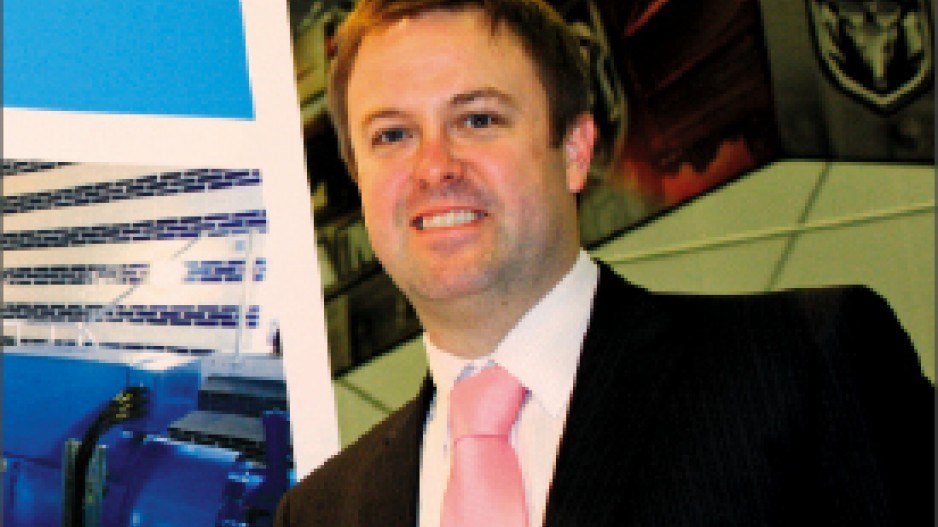Dreary, wet weather Wednesday made clean-tech business leaders from the U.K. feel right at home in Vancouver the first day of the 2012 GLOBE conference and trade fair on environmental sustainability.
A rainy climate might not be good for solar energy, but it’s perfect for companies involved in the hydroelectric power space, and Gilbert Gilkes and Gordon Ltd., which makes hydro turbines and generators, is feeling even more at home here now that it has opened an office in Kitsilano.
“It’s something we’ve considered for many years now,” said Alan Robinson, the Gilkes design engineer who heads the new Vancouver office. “Historically we’ve sold a lot into Canada, with in excess of 50 hydro installations throughout Canada, the majority of which are in B.C.”
Newfoundland is also a good market for Gilkes, as are the Pacific states of Washington, Oregon and California. But the company chose Vancouver to set up a North American office mainly because it sees a growing market here for its equipment – turbines and generators for run-of-river power – thanks to the B.C. government’s focus on renewable energy.
Michael Rosenfeld, Britain’s vice-consul and lead officer for clean technology, said his office has identified B.C. and the Pacific Northwest states as a prime market for partnerships between British and North American companies and suggested Vancouver might see more clean-tech companies from the U.K. doing business here.
“Other companies have looked at this market because British Columbia has a clean-technology focus,” Rosenfeld told Business in Vancouver.
According to one estimate, 45% of all new power generation being installed worldwide now comes from renewable-energy technology, such as wind, solar, geothermal and hydro power.
B.C.’s most abundant natural power resource is its abundance of water, and Robinson said his company hopes to see it more fully exploited through more run-of-river power projects.
“The new B.C. energy plan, hopefully, will encourage this hydro power that’s a natural opportunity waiting to be developed,” he said. “We genuinely hope to be part of that.”
Gilkes was one of 15 U.K. companies attending the three-day Globe gathering, one of the world’s largest conferences and trade fairs for clean technology and renewable-energy companies. A total of 10,000 delegates from 50 countries were expected to attend the conference.
According to Premier Christy Clark, who opened the three-day conference Wednesday, there are 202 B.C. companies involved in the clean-tech sector, employing 8,400 people.
“Clean-tech jobs could double in B.C. by 2020,” B.C. Environment Minister Terry Lake told the British delegates at a luncheon Wednesday.
B.C. is not the only jurisdiction focused on renewable energy and greening the economy. Some of the biggest markets for renewable energy companies are outside of Canada. Many European countries – including Britain – have been fuelling a boom in the renewable-energy sector through incentives like feed-in tariffs.
Andrew Pocock, Britain’s high commissioner to Canada, told the U.K. delegation and B.C. guests at Wednesday’s luncheon that his country’s government has made greening the economy a top priority, despite problems throughout Europe with debt control.
“In the midst of the most challenging fiscal and economic situation that we’ve faced in our professional lifetime, the British government is still spending in two key areas,” Pocock said. “The first is in science and innovation. The second is infrastructure.”
He added that B.C. is an ideal partner for British clean-tech firms seeking partnerships and new market opportunities.
“You are a standard-setting province,” he said. “You’re remarkable in the technologies you’re producing, and you’re unshakeable in your commitment to moving in the direction of a low-carbon economy, and I think we have a great deal to learn from each other.” •




